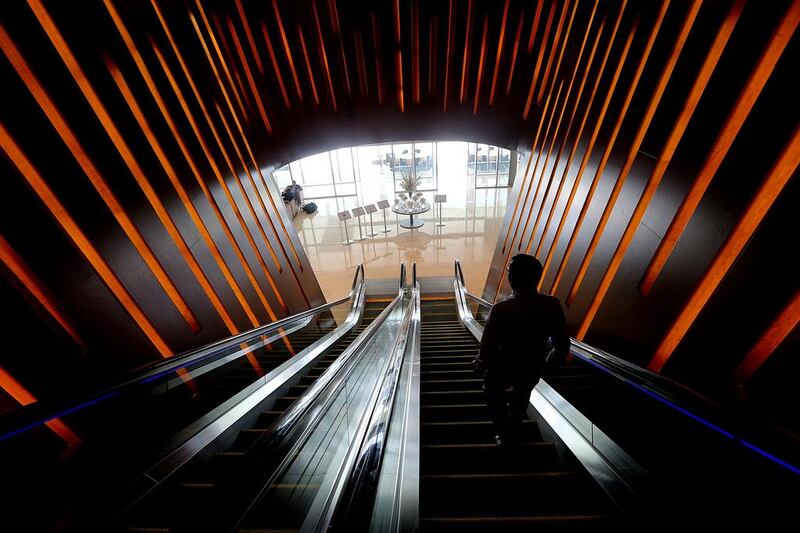Rising hotel room rates in Dubai could prove to be a boon to other emirates as some travellers stay away from the city, experts say.
“[Dubai] won’t lose out in the short term but what we will find is some spillover effect with people staying in Sharjah and Abu Dhabi more,” said John Podaras, a Dubai-based partner at the Hotel Development Resources consultancy.
“While corporate travel is restricted and people want to stay where the event is being held, leisure travel is a lot more flexible.”
Last month, room rates in Dubai rose to their highest level since 2008, averaging Dh1,177.74 a day. They were also 11.7 per cent higher compared with January 2013, according to the research company STR Global.
Higher prices in Dubai give hotels in Abu Dhabi an edge.
Last year, the average room rate in the capital was Dh447.60, a drop of 1 per cent from the previous year. The Abu Dhabi Tourism and Culture Authority (TCA Abu Dhabi) says it wants to keep the luxury proposition of the capital affordable.
In the heart of Abu Dhabi, the mid-range Cristal Hotel has registered an increase of between 5 per cent to 10 per cent a year in the number of leisure tourists from Dubai. Last year, 2,400 leisure tourists from Dubai stayed at the hotel.
“It’s getting better every year,” said Sanjay Kumar, the assistant reservations manager at the hotel.
The number of domestic guests has been rising equally for the last couple of years as the capital adds more tourist attractions, he said.
Domestic tourists accounted for just over a third of all arrivals in the emirate last year at 960,476, a growth of 8 per cent on 2012.
Moreover, Abu Dhabi charges 16 per cent in tourism fees, compared with Dubai’s 20 per cent.
Higher prices in Dubai could also rub off on Abu Dhabi.
“[It] means Abu Dhabi properties, too, can increase their prices,” said Filippo Sona, the head of hotels division in the Middle East and North Africa at Colliers International. “But Abu Dhabi has been more cautious than Dubai and its investment in tourism is more calculated.”
There has also been a marginal increase in corporate groups that prefer to meet in Ajman, Abu Dhabi and Ras Al Khaimah, said Ajay Nair, an anta.Globalstar executive in Dubai.
There was a rise of about 4 per cent in the number of corporate groups that went to other emirates last year over the previous year, he said. His company handled about 55 groups last year.
While Dubai continued to draw a record number of tourists last year, the occupancy rate at the city’s hotels last month dipped marginally by 0.4 per centage points to 87.5 per cent.
“The growth in demand for January was not able to absorb the additional supply coming into this market, resulting in a slight decline in occupancy,” said Elizabeth Winkle, the managing director at STR Global.
Supply is expected to keep steady this year. A 237-room Four Seasons on the Palm Jumeirah and the second tower of JW Marriott Marquis with 804 rooms are among a raft of new openings scheduled for this year.
Dubai has around 84,000 rooms from 600 hotels and hotel apartments. The Dubai Tourism and Commerce Marketing wants to increase it to between 140,000 and 160,000 as it expects the city to host 25 million tourists a year by 2020.
However, some hotel developers are cautious.
“We will be selective in opening new properties to be sustainable beyond 2020,” said Joe Sita, the chief executive of IFA Hotel Investments. “In Dubai, we need to make sure [tourism] continues to grow.”
But with continued infrastructure development in Dubai and Abu Dhabi, expansion of routes from Etihad Airways and Emirates Airline, sustaining tourism beyond 2020 should not be a problem.
ssahoo@thenational.ae





